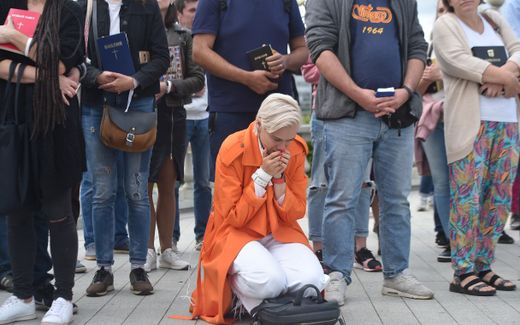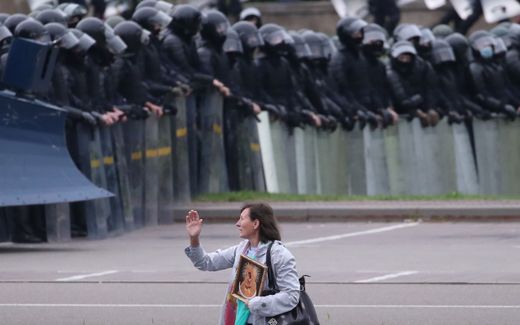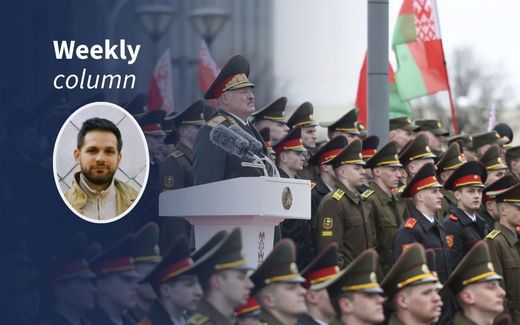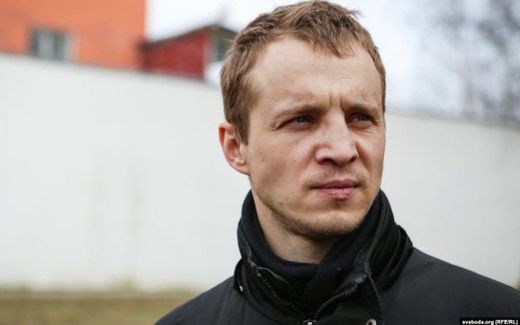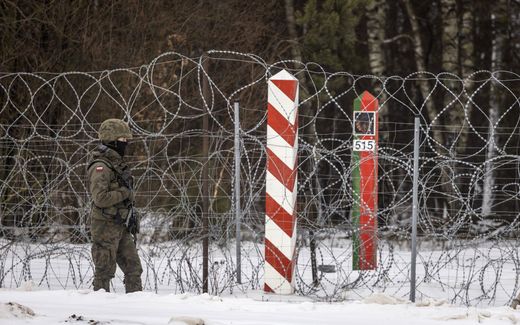Christians in Belarus suffer in prison, but their faith sustains them
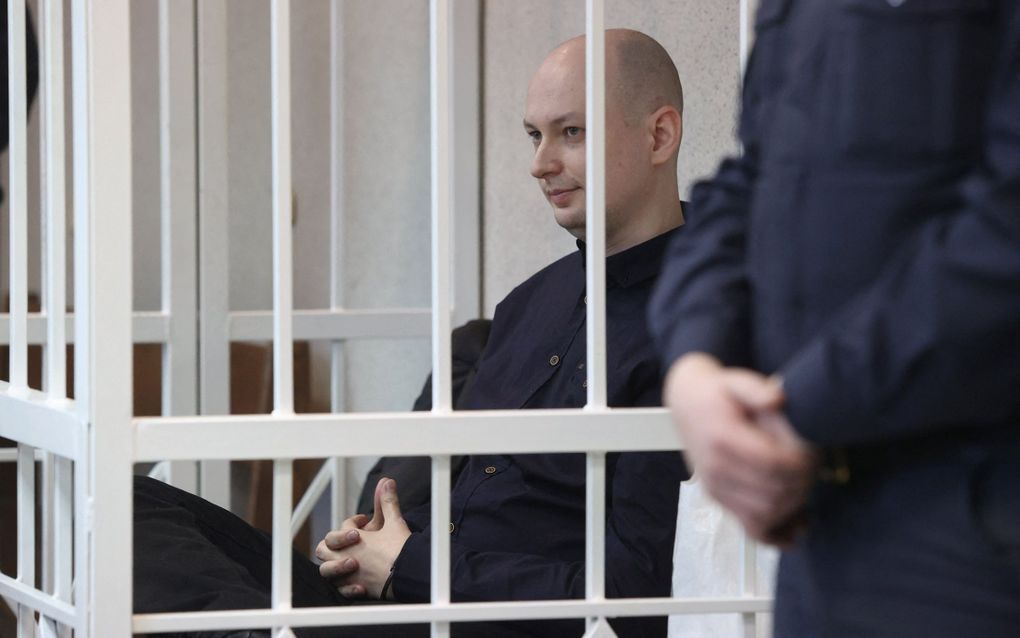
A Belarusian activist in court in Minsk. The image is not related to the article. Photo AFP, Ramil Nasibulin
Christian Life
“How long, O Lord?”—these words from the Psalms have become more than just a quote for Belarusians. In a sense, they are our national slogan. Suffering and hardship have affected everyone, not just those active in political life.
In this column, I would like to briefly share the painful experience of my friend, an evangelical Christian and father of three, who spent the last four years of his life in prison for participating in peaceful manifestations against police violence and for free elections. This horrific experience vividly demonstrated to my friend the gravity and horror of sin, as well as the beauty of God's grace and providence.
However, I cannot reveal my friend's name. After all, my friend lives in Belarus, and “punishment” by the state there is not limited to imprisonment and release after serving a sentence. It can be repeated with even more terrifying force if a person inside the country openly complains or honestly describes his “prison adventures”.
However, I think it is important to share what this kind of suffering does to a person. Therefore, I will recount the experience of my Christian friend from a place of destruction and humiliation.
“Good people don’t go to prison”
Until 2020, my friend firmly believed that a good and decent person in the 21st century could not end up behind bars. A Christian, of course, may encounter unpleasant consequences for proclaiming the Gospel: hatred, hostility, ridicule, but nothing more.
However, he was unpleasantly surprised that because of his participation in peaceful gatherings against violence and posting truthful information on social media about beatings and disappearances, armed men with weapons and masks showed up at his workplace.
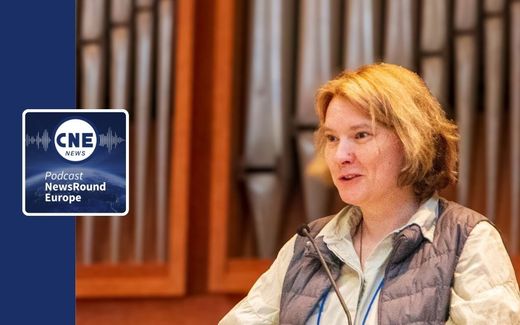
Just when my friend's family was preparing for the birth of their third child and trying to keep their small family business afloat, suddenly, everything turned upside down. It started with an arrest, followed by beatings, interrogations, and a detention centre where he had to stay with twenty people in a cell for eight. For a long time, it was impossible to even send a package with essential items. Then there was a trial during which there was no hope for an acquittal, and the verdict was four years.
Interestingly, my friend ended up in prison because of a tip-off from a colleague who openly hated him because of his Christian faith. The informer considered my friend a sectarian. It turns out that even decent people can end up in prison in our country.
“I was afraid of losing hope away from the church and my family”
Never would my friend have imagined himself in prison. The mere thought of his wife having to cope with childbirth and raising children on her own broke his heart. In addition, she was forced to personally carry heavy bags of supplies to the detention centre and later to the prison colony.
“How long must I take counsel in my soul and have sorrow in my heart all the day? How long shall my enemy be exalted over me?”
Raising children and finding money were not easy for the family. But helping them was also risky. Some people who donated money were arrested as well, including those who just ordered groceries from a large chain store.
This resonated even more deeply in my friend's heart with questions like, “How long, o Lord? Will You forget me forever? How long will You hide your face from me? How long must I take counsel in my soul and have sorrow in my heart all the day? How long shall my enemy be exalted over me?”
His imprisonment gave my friend a strong feeling of abandonment. He had no way of communicating with the outside world. He was not allowed to receive letters or buy books. Even for having long conversations with him, some prisoners who had not been convicted on political charges could be sent to solitary confinement or punished in other ways.
In addition, he was repeatedly threatened with rape and other problems that are possible in a closed, isolated institution. Once every two months, he was allowed to make a short phone call home. He was also allowed to borrow a Russian translation of the Bible from the library to read.
Hatred
You can imagine that those four years turned into a terrible and difficult ordeal for my friend. This period of his life became a real test of his faith in Christ in all circumstances.
“I truly understood that the Lord is my only comfort and hope in life and death. Nothing else can strengthen faith and restore hope and meaning in a cold basement amid the cries of people, with limited food and water”, he says, looking back after four hellish years of imprisonment.
“I have never understood the book of Job and many of David's Psalms so vividly, and that's not only because of the similar emotions I experienced. Imprisonment in Belarus showed how terrible and sinful the world we live in is, how strong the hatred is for everything that is Godly, righteous, just, and pure. And how wonderful, in these circumstances, is the great salvation accomplished by the Lord, Who took upon Himself our sins, filth, and suffering, which we all deserve.
In prison, all alone, and full of fear, I read the Word of God or remembered it. And then, I really realised that I’m in Christ and can stand whatever I will face. Not because of my own strength, but because of Who my Lord is.”
Today, my friend and his family are worried about whether they can stay in the country or will be forced to seek peace elsewhere. However, despite the difficult situation, looking at the reality around him, he boldly, though not as recklessly as before, repeats the text of Psalm 13:5-6. “But I have trusted in your steadfast love; my heart shall rejoice in Your salvation. I will sing to the Lord, because He has dealt bountifully with me.”
Related Articles


